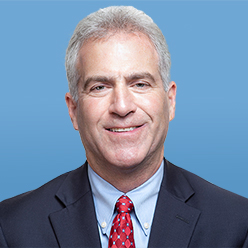President-elect Trump will likely transform U.S.-Israeli relations — and U.S. relations across the Middle East — by providing more military and diplomatic support for Israel, working to weaken Israel’s adversaries and pursuing more Arab-Israeli peacemaking.
His efforts will be buttressed by GOP control of Congress. With the Jewish State increasingly a flashpoint in American politics, Republicans will promote their party as a better ally of Israel than a Democratic Party which has grown more critical of Israeli behavior in recent years.
Warming ties between Washington and Jerusalem, and coming changes in U.S. policy, however, carry risks for both sides. For Washington, they could complicate the Western support needed to advance other U.S. goals around the world. For Jerusalem, they could tempt the hard-right governing coalition to misinterpret, and thus jeopardize, American support by, for instance, annexing the West Bank.
The coming changes will play out on at least four fronts:
First, more support for Israel in the global arena. Trump is assembling an ardently pro-Israel foreign policy team, perhaps best exemplified by his choice for ambassador to the United Nations, Rep. Elise Stefanik (R-N.Y.).
An outspoken critic of the U.N. over its anti-Israeli tilt since Hamas’s slaughter of Oct. 7, Stefanik spoke in front of Israel’s Knesset in May, promoting American support for the Iron Dome and other cutting-edge technologies and applauding such prior Trump initiatives as moving the U.S. embassy to Jerusalem and negotiating the Abraham Accords to expand Arab-Israeli peace.
We should expect more full-throated American support for Israel before the General Assembly and at the Security Council — where Stefanik will unhesitatingly veto anti-Israel resolutions — and more outspoken criticism of the U.N.’s Human Rights Council over its obsessive focus on Israel. Mirroring such sentiment around the world will be Trump’s top choices for diplomatic and military positions, such as secretary of State nominee Sen. Marco Rubio.
Such vocal American support for Israel may put Washington out of step with its European allies, raising the question of whether that will complicate U.S. efforts to nourish Western unity on other issues.
Second, expect less public criticism about Israeli behavior. Compared to President Biden, Trump is less likely to hector Israel about how it is waging war against Hamas in Gaza or Hezbollah in Lebanon, and is less likely to pause arms shipments to Israel or condition aid on Israeli action to reduce civilian deaths.
On the phone last month, Trump reportedly told Israeli Prime Minister Benjamin Netanyahu to “do what you have to do” in waging the country’s current wars and expressed his admiration for Israeli military operations.
Trump also will likely pressure Israel less over its settlements in the West Bank. The question is whether Jerusalem will overreach and, as some senior Israeli ministers are advocating, leverage Trump’s support by annexing parts, or all, of the West Bank. That could prove a bridge too far for the incoming president, renewing U.S.-Israeli tensions over a highly contentious issue of global concern.
Third, expect more pressure on Israeli adversaries. Regarding Iran, Trump will resurrect the main policies of his first term. He will reimpose his “maximum pressure” campaign of stronger sanctions and take steps to block Iranian oil sales in hopes of pressuring Tehran to abandon its terror-sponsoring activities and nuclear pursuits.
He also will leave the 2015 global nuclear deal with Iran to wither, if not die. Biden tried to resuscitate the deal, from which Trump had withdrawn the U.S. in 2018, as part of a larger accommodation with Tehran, but Trump is unlikely to seek any such arrangement.
After Tehran fired 180 missiles at Israel last month, Trump said that Jerusalem should target Iran’s nuclear sites. But whether Trump, who has criticized other American presidents for launching wars, would risk an all-out war with Iran by joining with Israel on such an attack may be another matter.
Fourth, expect more peacemaking. Trump surely will seek to extend the Abraham Accords of 2020, which brought peace (of varying degrees) between Israel and Bahrain, Morocco, the United Arab Emirates and Sudan.
Like Biden, Trump will push for “normalization” between Saudi Arabia and Israel, which could spur far broader Arab-Israeli peace. But even if Trump sweetens the pot for Riyadh by offering more financial and military incentives, recent developments suggest that normalization could remain elusive.
Saudi Crown Prince Mohammed bin Salman, who has conditioned Saudi-Israeli normalization on Israeli-Palestinian peace, is now accusing Israel of committing “genocide” in Gaza while cozying up to Iran, formerly a Saudi enemy. Whether Trump can sweet-talk Riyadh into peace with Jerusalem while he seeks to force Tehran to succumb to “maximum pressure” is a very open question.
All told, Trump will bring welcome changes to U.S. policy toward Israel, but those changes could invite missteps by Jerusalem and create new challenges for Washington with other key players across the region.
